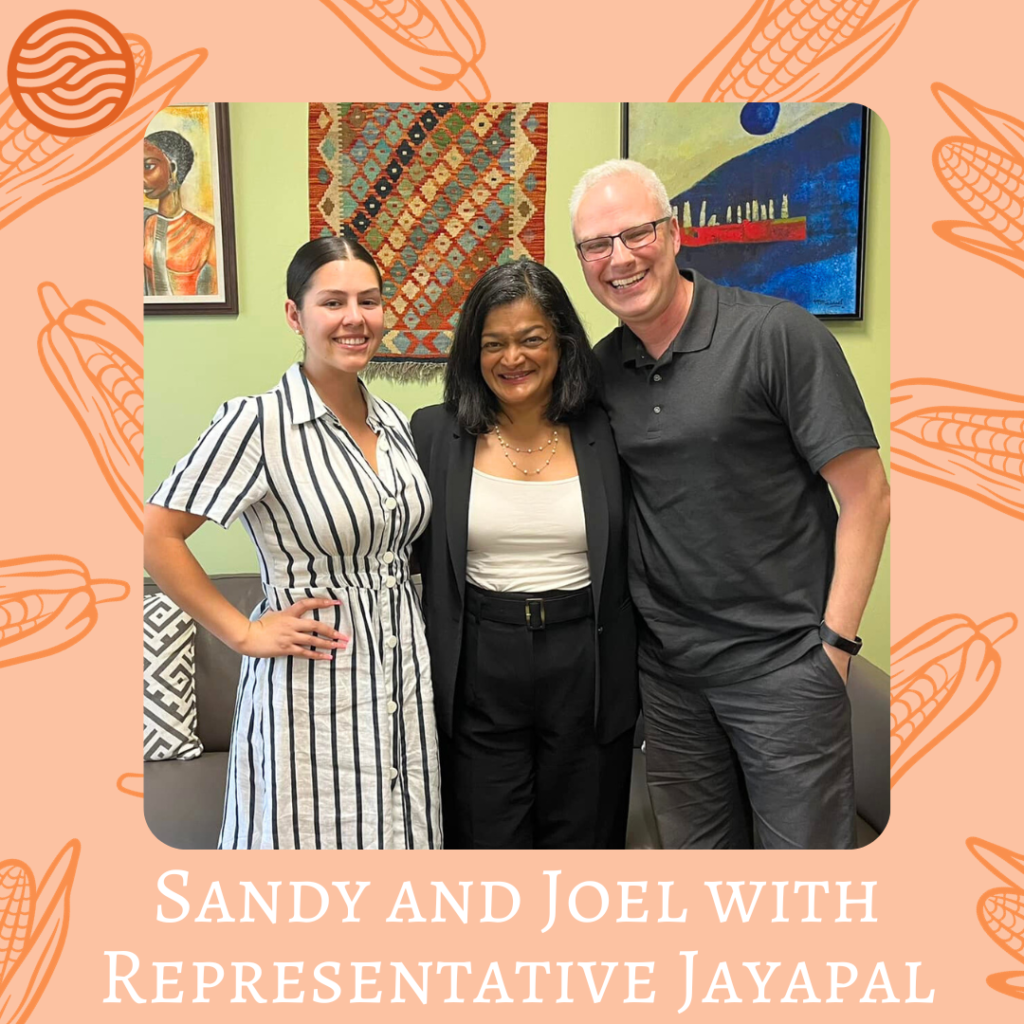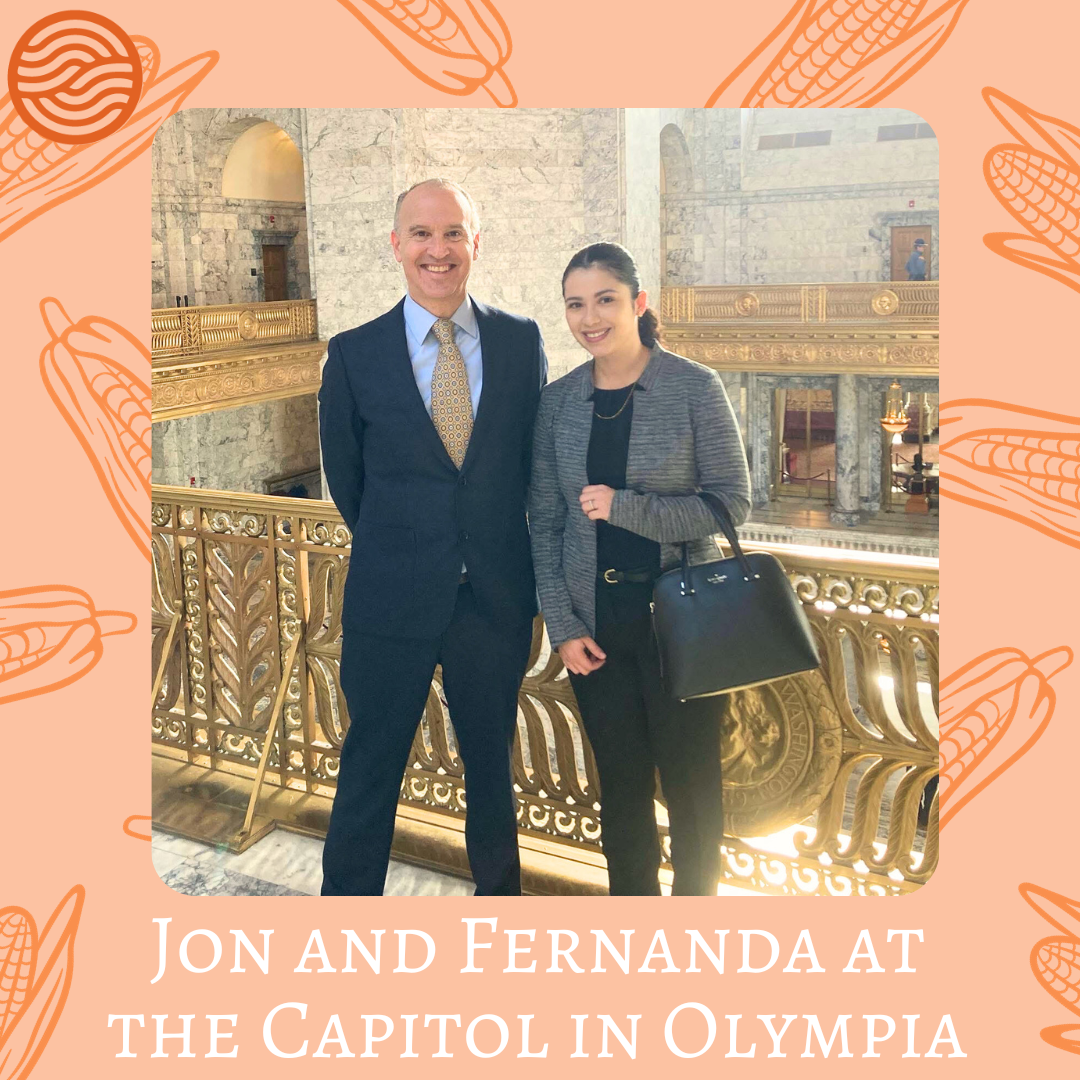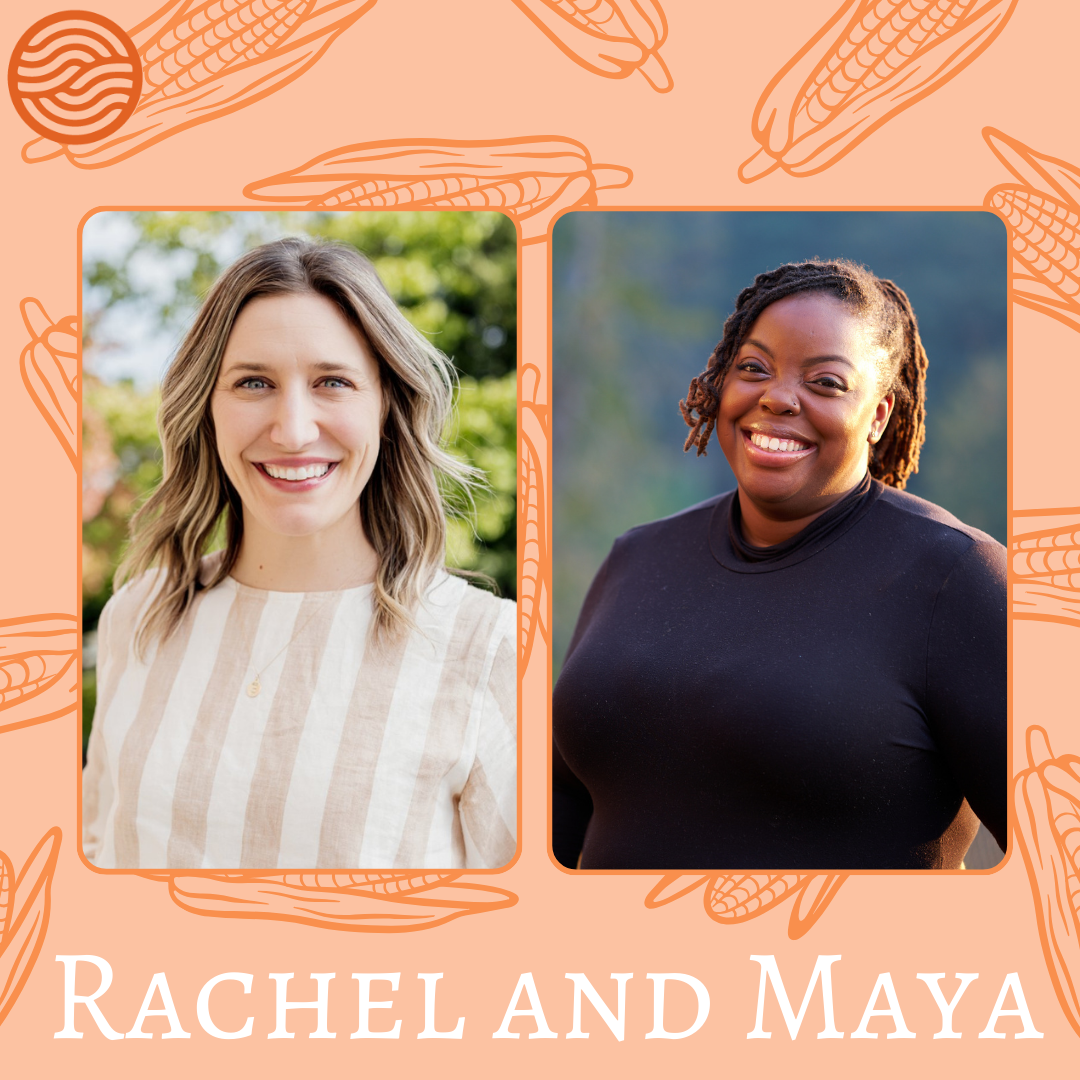The Pathwaves Fellowship is designed to be a three-way partnership between Pathwaves, the Fellow, and their placement site. Relationships are intended to be mutually beneficial, creating a web of learning, leadership, and influence. Pathwaves Fellow at the Washington State Association of Head Start & ECEAP (WSA), Sandy Diaz, and her supervisor Joel Ryan perfectly model this kind of partnership.
Sandy shares, “Off the bat we established a very comfortable relationship that made it possible for us to have really deep, intentional conversations. I don’t worry that I am stepping out of line because the workplace is healthy and our communication is transparent.” Joel adds, “We’re better together. And Sandy has taught me a lot. It’s a two way street with her.” He goes on to share that they are open about how different their life experiences have been, and really take advantage of the opportunity to learn from one another. “I like teasing her about our generational differences, but it’s not just that. It’s about diversity and new ways of thinking about things. A new perspective.”

Throughout the conversation, this topic of difference and expanding perspectives continued to be a theme. Joel shares, “Sandy is great at asking if we are looking at things through the proper lens. If you are used to doing something a certain way and you are challenged, that can be difficult. Sandy excels at interrogating the process and outcomes.” It isn’t always easy to receive criticism, and Sandy and Joel don’t pretend like those conversations aren’t tricky to navigate. Joel shares, “I think advocates can do a better job of listening. And I encourage Pathwaves Fellows to keep in mind that most of the people who are doing this work have good intentions. It’s important for us supervisors to support the Fellows as they figure out how to make their voices heard. Then we can make meaningful change together.”
Sandy asks thoughtful questions that challenge the way things have always been done while also acknowledging the effort and good intentions behind existing systems. This doesn’t mean she ignores the fact that good intentions can have harmful impacts. However, it allows her to more effectively engage in thoughtful conversations with leaders about how to make changes so that their intended outcomes might actually be possible. She mentions feeling frustrated that change isn’t often immediate, but is hopeful that her influence will grow as she continues to develop as a leader.
Looking ahead, this is exactly what Joel dreams for Sandy’s future: “My hope is that by the end of this Fellowship I have helped develop Sandy into a strong advocate.” It’s important to both of them that she is not only included in important conversations around policy and advocacy, but that she also has the necessary skills to tackle any kind of task that is thrown her way. For Joel, he hopes that he has offered Sandy ample opportunities to practice skills like memo writing and meeting facilitation so that in her next role she is “ready for anything”. Sandy is eager to engage in advocacy activities at a higher level, naming “knowledge-based skills” as her current top priority as she enters the next legislative session. In particular, she wants to deepen her knowledge and understanding of legislative topics at the federal government level.
But before they get too far ahead of themselves, Joel takes a moment to acknowledge the impact Sandy is already making through her role as a Pathwaves Fellow. “Sandy may not realize this, but she has already contributed a lot. With her support, we have been able to secure a lot of funding for programs including the Tribal Early Learning Fund, host meetings with various groups including Representative Jayapal, and conduct interviews and site visits with providers in Washington.” Sandy and Joel’s commitment to each other’s learning and leadership is already bearing fruit. They look forward to seeing what they will accomplish together through the Fellowship and beyond.



